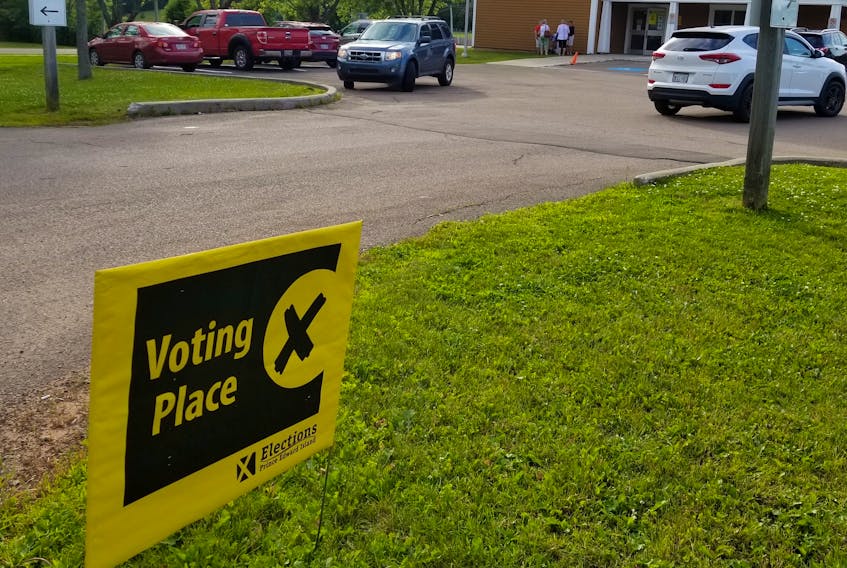Anyone who has recently tried to win an argument with a 16- or 17-year-old, knows how frustratingly insightful and nuanced the thinking of a adolescent can be. They have a way of seeing through pretense and telling us the truth whether we like to hear it or not. The brain science backs up what many of us have experienced; 16- and 17-year olds have the full intellectual capacity of adults. Add to this that this cohort is still in school, learning about elections, democracy and government, and the research paints a clear picture, it is time we let 16- and 17-year-olds apply this knowledge and use their innate abilities. Sixteen is the perfect age to give young people the right to vote.
Green party MLA Karla Bernard recently introduced a bill in the P.E.I. legislature that would give those aged 16 and 17 the right to vote. This isn’t the first time the idea has been suggested in P.E.I., in fact, P.E.I. was the first province in Canada to allow 16- and 17-year-olds to vote in a plebiscite, and the idea of expanding ideas to provincial elections was first floated in 2017.
Both in Canada and elsewhere, the debate surrounding lowering the voting age to 16 has gained traction in recent years. In 2014, Scotland gave 16- and 17-year-olds the right to vote in the referendum for independence. After this was successful with the 16- and 17-year-old cohort having a higher voter turnout in the referendum than 18- to 34-year-olds, the Scottish public and politicians warmed to the idea and the voting age for Scottish Parliament and local government elections was lowered to 16 in 2015. (See https://www.electoral-reform.org.uk/votes-for-16-and-17-year-olds-in-scotland-wales-and-overseas/).
Scotland isn’t the only country where young people under 18 can vote; Argentina, Austria, Cuba and Nicaragua, amongst others, allow voting rights for those younger than 18 at the national level. In municipal elections, parts of Germany, a city in Maryland in the United States, all allow those younger than 18 to vote. And many of our political parties in Canada allow voting in leadership races by the age of 14.
Despite this growing trend, anytime lowering the voting age is discussed, the arguments made against it persist. Concerns about young people being uninformed and not ready to take this kind of decision seriously tend to be repeated time and time again.
The research, however, is clear, from the age of 15 years old, young people have the full intellectual capacity of adults according to experts like well-known psychologist Dr. Robert Epstein. They have the ability to think in a nuanced way and weight complex political arguments. Dr. Laurence Steinberg author of "Age of opportunity: Lessons from the new science of adolescence" makes a similar case, arguing that the brain research confirms that young people are more than capable to be trusted with the responsibility of voting by the age of 16.
And in fact, due to reasons associated with the life stage, 16 may in fact be the perfect age to give a young person the vote. Giving a young person the right to vote while they are still in school and living with their families, two factors that have been shown to encourage voter turnout, would likely make the transition from learning about civics to actually participating in the democratic process a smoother one. What better way to reinforce the knowledge a young person just learned in civics class than to put it into action.
The research is clear that voting is a habit, and a habit that must be developed while we are young if there is to be hope young people will become lifelong voters. The importance of ensuring young people vote in at least two elections before their 25th birthdays cannot be overstated.
The words of Ted Kennedy from his testimony before a Senate subcommittee in 1970 also help us put expanding the franchise to 16- and 17- years olds in a broader context: “It is worth noting, however, that almost all of the arguments now made against extending the franchise ... were also made against the 19th Amendment, which granted suffrage to women. Yet, no one now seriously questions the wisdom of that amendment.” In this quote, he isn’t talking about lowering the voting age to 16, but lowering it to 18.
It is easy it is to forget how recently other battles for expanding voting rights have been fought. In 50 years, similarly to how uncontroversial the idea of having an 18-year-old vote is now, we will likely have forgotten why we were ever concerned about giving 16- and 17-year-olds the right to vote in the first place.
P.E.I. has already been a leader in the Canadian context when it comes to giving 16- and 17-year-olds the vote in a plebiscite. Expanding this right to provincial elections not only makes sense — it is essential if we hope to meaningfully engage the next generation in the democratic process.
Ilona Dougherty is the co-creator and managing director of the Youth and Innovation Project at the University of Waterloo. In 2004, she co-founded Apathy is Boring, a non-partisan social enterprise that educates Canadian youth about democracy and encourages them to vote.









